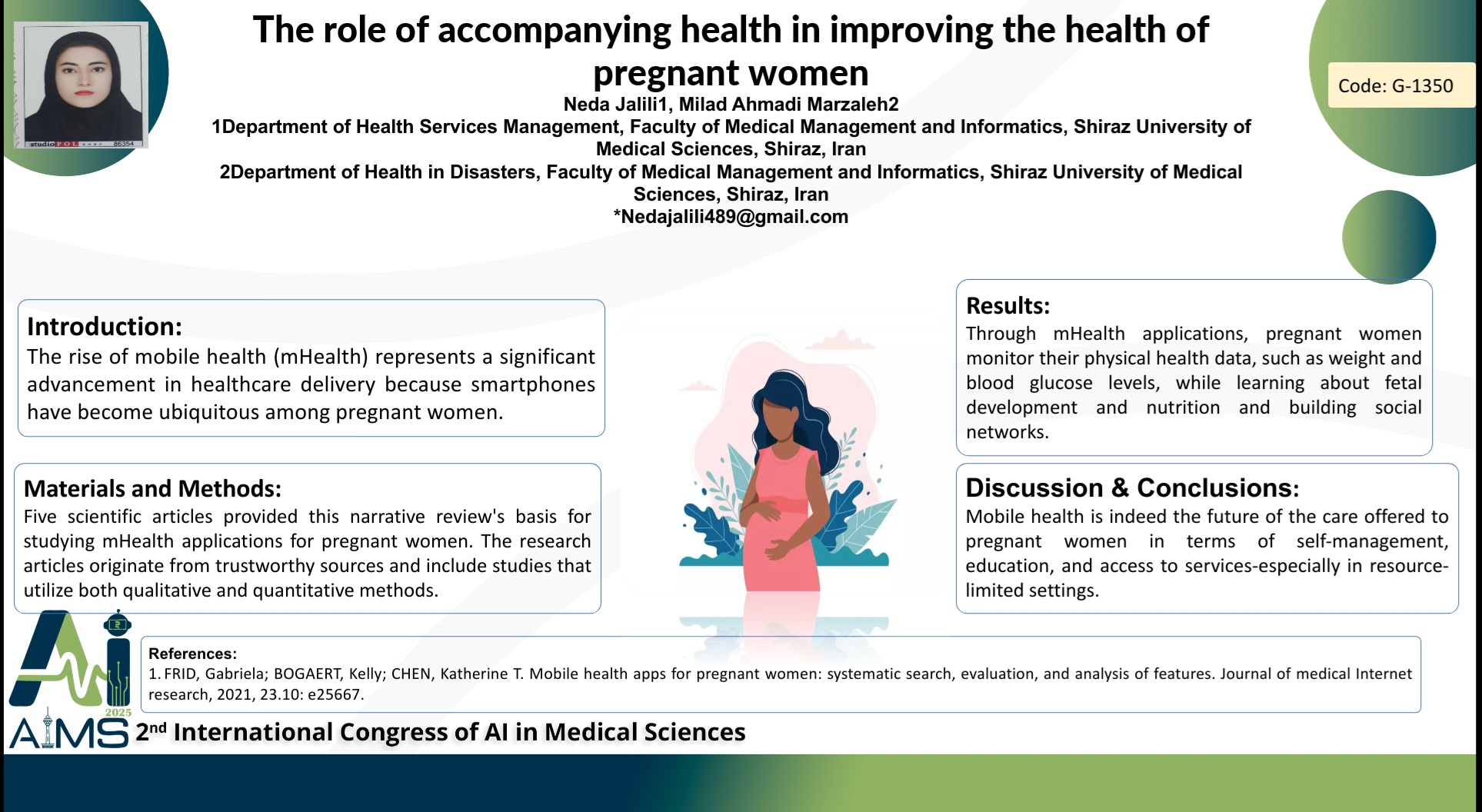نقش سلامت همراه در بهبود سلامت زنان باردار
کد: G-1350
نویسندگان: Neda Jalili * ℗, Milad Ahmadi Marzaleh
زمان بندی: زمان بندی نشده!
برچسب: سیستم های تصمیم یار بالینی
دانلود: دانلود پوستر
خلاصه مقاله:
خلاصه مقاله
Background: The rise of mobile health (mHealth) represents a significant advancement in healthcare delivery because smartphones have become ubiquitous among pregnant women. Through these technologies, women gain access to vital information and health management resources while reducing the necessity for face-to-face medical consultations, which benefits underserved groups such as low-income women or those managing diabetes. The quality and accuracy of these applications remain problematic alongside privacy issues, which underscore the necessity of examining their effectiveness and adaptability for different categories of pregnant women. Methods: Five scientific articles provided this narrative review's basis for studying mHealth applications for pregnant women. The research articles originate from trustworthy sources and include studies that utilize both qualitative and quantitative methods. The research team systematically reviewed app quality through usability principles and surveyed perceptions of underprivileged communities in their final study. The research team systematically reviewed studies in PubMed, Web of Science, and Scopus databases published since December 2015. The research results were synthesized narratively to expose trends, preferences, and gaps in mHealth apps for pregnant women. Results: Through mHealth applications, pregnant women monitor their physical health data, such as weight and blood glucose levels, while learning about fetal development and nutrition and building social networks. An app achieved high usability scores (66.65%) and 98% user satisfaction by delivering accurate results and facilitating doctor connections. The review indicated that merely 41% of the apps provided comprehensive features, yet it was uncommon to find text search (24%) or scientific citations (28%). Both privacy issues and inaccurate information presented challenges that highlighted the inconsistent quality of apps. Conclusion: Mobile health is indeed the future of the care offered to pregnant women in terms of self-management, education, and access to services-especially in resource-limited settings. Efficient, high-quality applications will become tools for tracking and empowering women's health during pregnancy. Improvements in accuracy, privacy protection, and information standardization for reliability would still be needed.
کلمات کلیدی
M Health, Pregnant Women, Healthcare Delivery
